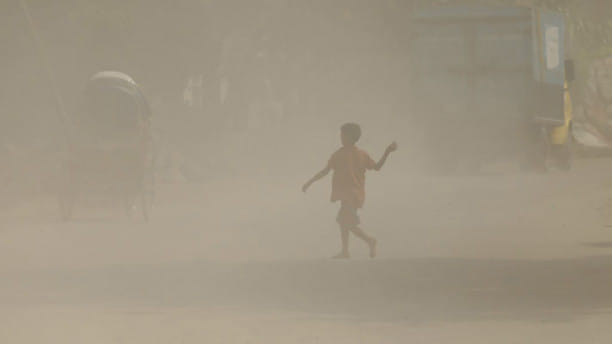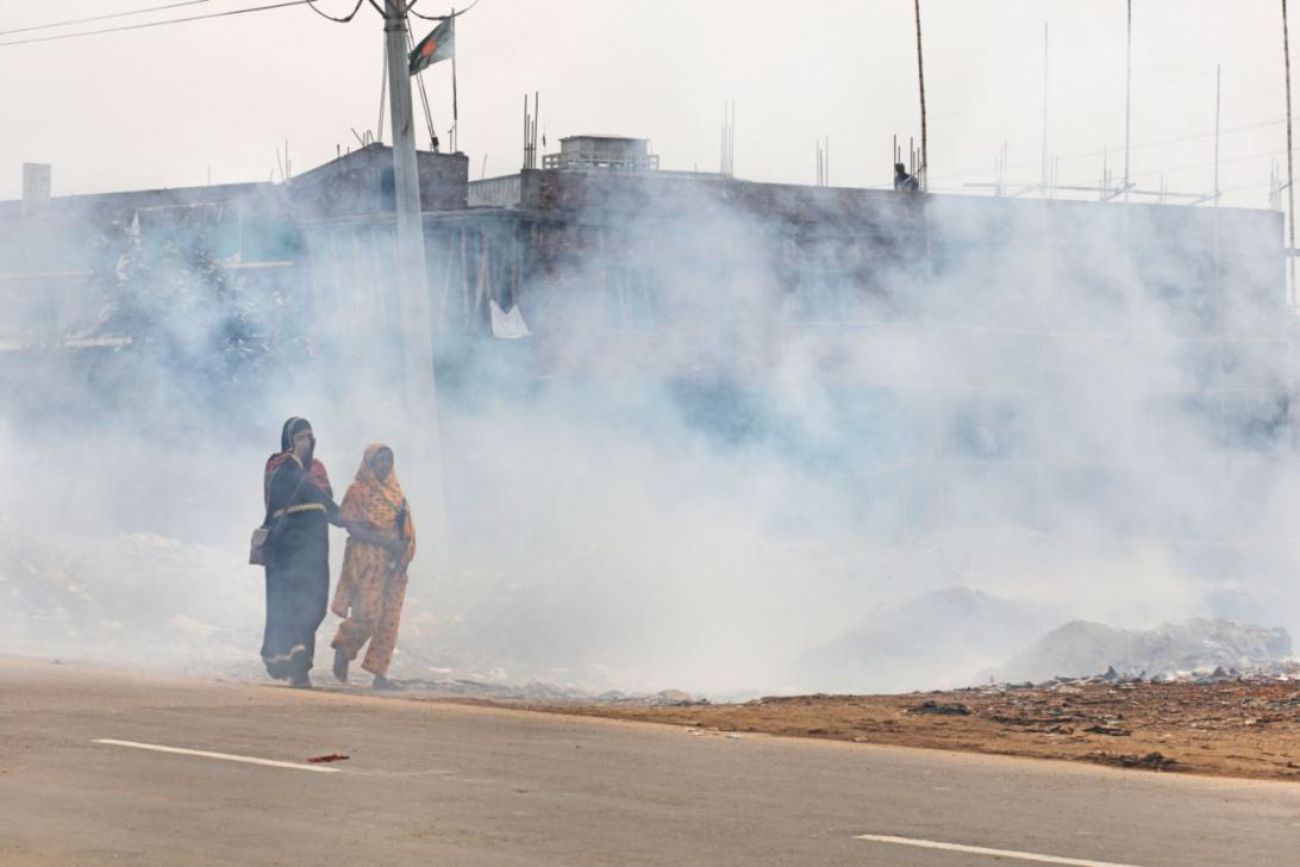Let us live, or we leave

You don't have to smoke a pack every day to get lung cancer in Dhaka – the air you breathe here will do it for you. Breathing this air is unfortunately not a choice for us; it's a necessity. A necessity that is also our kryptonite – a slow poison that kills us every day. Deep down we know that none of us is well. Regardless of our habits, we are all coughing every day. The few trees that are left in Dhaka have also given up. Their once green leaves are now covered with thick layers of dust.
In Dhaka, we do not live; we survive.
"Dhaka maintains its position consecutively at the top five of the lists of most polluted cities in the world," a ranking that we don't wish to be a part of, but our effortless performance leaves us "breathless." While smokers can consciously refrain from smoking in front of children, the poisonous air of this city mercilessly enters their still-developing respiratory systems. As a result, their immunity is heavily compromised. Currently, a majority of children in Dhaka – and Bangladesh – are suffering from multiple respiratory and immunity-related diseases. So, are we really consciously letting our children slowly die right before our eyes?
Dhaka's air contains mercury, chromium, nickel, zinc, arsenic and all the other deadly elements that can cause chronic respiratory complications in humans, especially in children. With their lungs still developing, children are getting exposed to extremely harmful particles present in the air in Bangladesh. Unlike adults, they have a higher lung capacity, which makes them inhale a larger amount of air, thus making them more prone to breathing in this poison.
According to The State of Global Air 2019, a report by the US-based organisations Health Effects Institute and the Institute for Health Metrics and Evaluation, "The life of a South Asian child will be shortened by 30 months on average as they grow up in the current high levels of air pollution." Air pollution is directly linked to diseases that can kill – pneumonia, bronchitis and asthma and many other irreparable lung and heart conditions. The smaller symptoms are mild lung infections and allergies. There is a sudden spike in infant mortality and premature births Dhaka, which can also be linked to air pollution.
What do all these statistics and health records mean to the ones responsible? Nothing notable has yet been done to address and tackle the situation.
One doesn't have to be an expert to test how much dust is present in our air. Just stand on the footpath by the Tongi Diversion Road for 10 minutes. Your eyes will start to burn and you will start coughing heavily even if you are wearing a face mask. Imagine this amount of poison entering your body every day. What's even more worrisome is how it's affecting our children.
Back in 2020, the High Court directed the authorities to submit a report within a week on what measures they had taken to reduce air pollution. Three years later, just last month, the court again called in the authorities concerned as to what they had done to implement the directives issued back in 2020. Noticing that nothing has been done yet, the court asked the authorities whether they "want to kill us."
All that the authorities concerned are doing is to go after the brick kiln owners to stop their operations. But brick kilns are just one of the contributors. Nothing has been done to stop the bus companies who run public buses with apparently no fitness whatsoever. These buses still emit thick black smoke, in the presence of the traffic authorities who are responsible for regulating said vehicles. Small factories inside the city also emit poisonous smoke as by-products. The regulatory authorities don't seem to bat an eye as these violations keep occurring.
One doesn't have to be an expert to test how much dust is present in our air. Just stand on the footpath by the Tongi Diversion Road for 10 minutes. Your eyes will start to burn and you will start coughing heavily even if you are wearing a face mask. Imagine this amount of poison entering your body every day. What's even more worrisome is how it's affecting our children.
Paediatricians these days are busy treating children with allergy-related complications caused by air pollution on a regular basis, not to mention respiratory issues. If this goes on, we have to prepare for a very sick and unwell generation ahead.
The popular quote "The great Bangladeshi dream is to leave Bangladesh" seems to make a lot more sense now that parents have to see their children suffer while breathing in poisonous air. No wonder parents who can afford it are sending their children abroad for a better life. What used to be an "elevation of standard of living" has now become just the bare minimum – to be able to breathe clean air. If I want my children to live, I'd either have to buy them an expensive gas mask with an oxygen tank, or leave this country for good. No matter how unpatriotic it may seem, I don't want to see my kids gradually die before my eyes. More and more families are emigrating to other countries to provide this basic necessity to their children, and I think nothing tops anyone's priority of ensuring a healthy life for their children. If the authorities concerned do not act now, we will have to pay a heavy price in the future.
Barrister Aiman R Khan is associate advocate at Rahman Law Associates and Company.




 For all latest news, follow The Daily Star's Google News channel.
For all latest news, follow The Daily Star's Google News channel. 

Comments